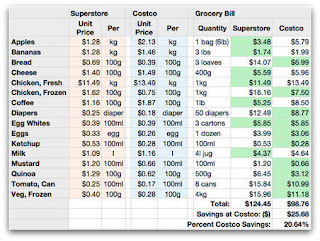Africa is huge, the world's second-largest and second-most-populous continent. For the fifty-four countries with extraordinary natural resources and a willing workforce, why does their wealth flow to the developed world? For hundreds of years, exploitation has been the norm with today's showcase elements being indebtedness and predatory trade practices.
Business and financial practices can be troublesome as they seek sustainable wealth extraction. Multinational corporations apply their influence against tariffs and other trade restrictions. A favorable rule broadens their market, increases workforce competition and lowers wage rates. It enhances their profitability with little regard for socioeconomic impact. Current initiatives impose an external capitalist/business model on large social groups.
"Why is it that corporations give millions of dollars to elected officials? Do you think it's simply public-spirited behavior?" ~Walter E. Williams
 NAFTA: After 20 years, the 'free trade agreement' has mixed reviews. The U.S. and Canada came out well enough, but Mexico ... The agreement removed tariffs on most agricultural products. U.S. and Canadian farms sell (govt subsidized) corn to Mexico, and Mexican corn farmers are unable to compete. "Entire towns are emptying because thousands of small farms have gone out of business. As many as 2 million farm workers have lost their jobs." CBS News Mexico does have increased exports of other products, but the workforce upheaval continues. Real wages are down, unemployment is up, and 25% of their children are malnourished.
NAFTA: After 20 years, the 'free trade agreement' has mixed reviews. The U.S. and Canada came out well enough, but Mexico ... The agreement removed tariffs on most agricultural products. U.S. and Canadian farms sell (govt subsidized) corn to Mexico, and Mexican corn farmers are unable to compete. "Entire towns are emptying because thousands of small farms have gone out of business. As many as 2 million farm workers have lost their jobs." CBS News Mexico does have increased exports of other products, but the workforce upheaval continues. Real wages are down, unemployment is up, and 25% of their children are malnourished.The Transatlantic Trade and Investment Partnership (TTIP) and the Trans-Pacific Partnership agreement (TPP), both are NAFTA on steroids with risks.
- In 2013, Nobel Prize economist Joseph Stiglitz warned that TPP presented "grave risks" and "serves the interests of the wealthiest."
- Organised labour in the U.S. argued that the trade deal would largely benefit corporations at the expense of workers in the manufacturing and service industries.
- The Economic Policy Institute and the Center for Economic and Policy Research argued that the TPP could result in further job losses and declining wages.
- In 2014, Noam Chomsky states that the TPP is "designed to carry forward the neoliberal project to maximise profit and domination, and to set the working people in the world in competition with one another so as to lower wages to increase insecurity."
- Senator Bernie Sanders stated that trade agreements like the TPP "have ended up devastating working families and enriching large corporations."
- Nobel Prize economist, Paul Krugman, reported, "... I'll be undismayed and even a bit relieved if the TPP just fades away", and said that "... there isn't a compelling case for this deal, from either a global or a national point of view." Krugman also noted the absence of "anything like a political consensus in favor, abroad or at home."
- Economist Robert Reich contends that the TPP is a "Trojan horse in a global race to the bottom, giving big corporations and Wall Street banks a way to eliminate any and all laws and regulations that get in the way of their profits."
"More powerfully, this process of poverty creation - the forceful extraction of commonly managed assets to serve financial elites - is exactly what recent social movements have called attention to. Occupy Wall Street, the Arab Spring, the African uprisings, even the anti-austerity stance of new political parties in Spain and Greece, all have one thing in common: The recognition that the only way for a tiny group of people to become obscenely rich is for huge masses of others to be kept chronically poor.
This cold logic of poverty creation tells us what needs to be done. Before obsessing about amounts of foreign aid, or pretending it can solve deep systemic problems, we need to all focus on changing the rules of economic systems to make them more inclusive, more participatory, more focused on creating well-being than simply extracting more aggregate wealth, and more accountable to those billions who are not being served by the current rules. This is how mass poverty truly can be brought to an end." ~Jason Hickel, Joe Brewer, and Martin Kirk
This cold logic of poverty creation tells us what needs to be done. Before obsessing about amounts of foreign aid, or pretending it can solve deep systemic problems, we need to all focus on changing the rules of economic systems to make them more inclusive, more participatory, more focused on creating well-being than simply extracting more aggregate wealth, and more accountable to those billions who are not being served by the current rules. This is how mass poverty truly can be brought to an end." ~Jason Hickel, Joe Brewer, and Martin Kirk






























